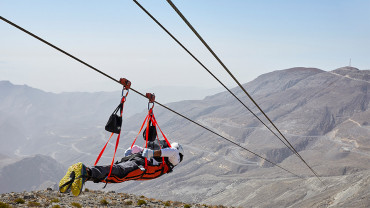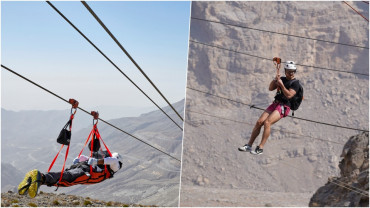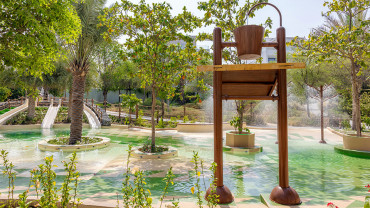KODO
Kodo is a performing ensemble, playing the taiko, a traditional Japanese drum with limitless rhythmic possibilities. In Japanese the word ‘kodo’ has a double meaning – it can be translated as ‘heartbeat’, the primal source of all rhythm. The great taiko is thought to evoke the mother’s heartbeat as felt from the womb, and babies are often lulled to sleep by its thunderous vibrations. In a different context, the word can also mean ‘children of the drum’, which reflects the group’s desire to play the drums with the simple heart of a child.
Since the group’s debut at the Berliner Festspiele in 1981 Kodo has given more than 7,000 performances in over 50 countries and regions on five continents. This includes 4,200 performances under the ‘One Earth’ banner, a theme that embodies Kodo’s aim to transcend language and cultural boundaries while always being aware of the common bonds we all share as human beings. In addition to public performances, Kodo works with thousands of schoolchildren across Japan on school workshop tours. The ensemble has also contributed to film soundtracks, including the Chinese film Hero, and in 2001 became the first Japanese artists to perform at the Nobel Peace Prize concert in Oslo. The following year Kodo was featured in the official anthem of the 2002 FIFA World Cup Korea/Japan and performed live at official World Cup concerts.
In 2006, Kodo realized its first onstage collaboration with the legendary Kabuki actor Tamasaburo Bando in Amaterasu, a musical dance play based on a Japanese myth. This performance served as a catalyst for Kodo, propelling them towards new forms of percussive expression and paving the way to further stage appearances. Bando became Kodo’s artistic director between 2012 and 2016.
Every year since 1988, the rich, natural landscape of Sado Island, in the eastern part of the Sea of Japan, sets the scene for Earth Celebration, Kodo’s international arts festival. Produced by Kodo in co-operation with the people of Sado Island, Earth Celebration seeks to create an alternative global culture through musical and cultural collaborations with artists from around the world. It is the nation’s longest running music festival. In 2008 the Japan Centre for Regional Development presented Earth Celebration with the Furusato Event First Prize in recognition of the festival’s significant achievements. In 2009 the Earth Celebration Committee was awarded the Tiffany Foundation Award for the Preservation of Japanese Traditional Arts and Culture in Contemporary Society.
The Kodo Cultural Foundation was established in 1997 with the goal of sharing the group’s experiences and giving back to the community via social education and local development programmes. The Foundation covers a broad range of activities: in addition to managing an array of workshops, it produces Earth Celebration and manages the Kodo Apprentice Centre, which nurtures new generations of Kodo performers. In addition the Foundation runs Sado Island Taiko Centre (Tatakokan), supporting and conducting research into traditional culture and the performing arts. In 2011 the Kodo Cultural Foundation was recognised as a Public Interest Corporation in Japan. Kodo has also formed collaborative ties with Tokyo’s Bunkyo Ward and the Bunkyo Academy Foundation.























































